What are the alternatives to a Debt Consolidation Loan?
Debt Management Plans (DMPs)
A DMP is an informal arrangement that helps you combine your eligible debts into one affordable payment, allowing you to pay creditors back one month at a time. This monthly payment will be based on your budget and is calculated by taking your monthly incomings and outgoings into account.
After the reduced monthly rate has been calculated, it will be proposed to each of your creditors and if they accept it, you can make monthly debt repayments over an extended period of time. With a DMP, you only pay what you can afford so if your circumstances change then the monthly payment amount may be altered to reflect this.
As a DMP is an informal agreement, it isn’t legally binding. This means there is no minimum period you’re tied in with it and you or your creditors are free to cancel at any time.
Combined debt repayment
A DMP combines multiple debts into one affordable payment, making it easier to and avoiding late fees from juggling multiple creditors.
Affordable payments
Your monthly payment is based on your income and expenses, ensuring you only pay what you can afford.
Potential to freeze interest
Your provider may negotiate with creditors to freeze interest and charges, helping you repay debt faster.
Less contact with creditors
Your debt advisor handles communications, reducing the number of calls and letters from creditors.
Not recorded on the Insolvency Register
Unlike IVAs or bankruptcy, a DMP isn’t publicly recorded, keeping your finances private.
No debt write-off
Unlike IVAs or bankruptcy, a DMP doesn’t write off debt. You must repay the full amount, often making it a more expensive option.
Longer repayment period
Since all debt must be repaid, a DMP can take years to complete, lasting longer than other debt solutions.
No legal protection
A DMP isn’t legally binding, so creditors can still contact you, stop the agreement or take legal action at any point.
Doesn’t cover all debts
DMPs only cover non-priority debts like credit cards, not priority debts which include things like rent, court fines and electricity bills.
Credit card accounts must be closed
Any credit card accounts included in your DMP must be closed and you may be advised to close others to avoid further debt.
The process of setting up a DMP involves various costs and so it’s normal for your DMP provider to charge you a fee to cover these. There are two main types of fees you might encounter with a DMP:
Arrangement fee
This one-time fee covers the setup of your DMP, including assessing your finances, drafting a payment plan, and negotiating with creditors. It can often be paid in instalments.
Monthly management fee
A monthly fee covers the ongoing management of your DMP, including liaising with creditors and providing continued support. This is typically a percentage of your payments but is capped at 50%.
Individual Voluntary Arrangements (IVAs)
Available to people in England, Wales and Northern Ireland, IVAs are a formal, legally binding agreement between you and your creditors that sees you repay your debts over a set time period.
An IVA is approved by the court and, as such, your creditors must stick to it. An IVA typically lasts for around five or six years. Once it ends, any remaining debt, included in the IVA, is written off.
While you are in an IVA, your creditors must stop chasing you for repayment and they are not permitted to charge interest on your debts. Any contact between you and your creditors goes through an Insolvency Practitioner (IP) or your debt management company.
During the IVA, you’re required to make agreed payments. This might be a monthly sum or a single lump sum.
Some debt may be written off
Unlike bankruptcy, an IVA allows you to write off a portion of your debt once you’ve completed the agreed repayment term. This helps reduce the overall amount you need to repay.
Protection from creditors
Once an IVA is in place, creditors cannot take legal action against you or chase you for payments, offering relief from constant calls and letters.
Personal assets are protected
IVAs do not require you to sell your home or car, though you may need to release equity from your property if you are a homeowner.
Interest is frozen
During an IVA, interest and charges on your debts are frozen, meaning your repayments directly reduce what you owe rather than just covering interest.
Ongoing support
A licensed Insolvency Practitioner (IP) will manage your IVA, offering guidance and support throughout the repayment period to help you stay on track.
Your credit score will be impacted
An IVA remains on your credit file for six years, making it harder to obtain credit, including loans, mortgages, and credit cards.
Not all debts are covered
IVAs only apply to unsecured debts like credit cards and personal loans. Secured debts, such as mortgages or car finance, must still be repaid separately.
Strict budgeting is required
You must adhere to a set budget for the duration of your IVA, which can last up to six years, requiring significant lifestyle adjustments.
Your name is made public
An IVA is recorded on the Individual Insolvency Register, which can be accessed by anyone, including employers, landlords, and lenders.
Creditors must agree
For an IVA to go ahead, at least 75% of creditors (by debt value) must approve it. If they reject it, you may need to consider alternative debt solutions.
At MoneyPlus, we never ask for upfront fees. Instead, these are covered by your monthly contributions. Before committing to an IVA, we’ll explain all fees and how they’re calculated.
There are three types of IVA fees:
Nominee’s fee
This covers setting up your IVA, including preparing your proposal and liaising with creditors. It is usually £2,100 but may be reduced by your creditors.
Supervisor’s fee
This covers ongoing IVA management, typically £2,100, although once again, your creditors may reduce it.
Disbursement costs
Miscellaneous expenses like third-party fees, insurance, legal advice, and property valuations.
Bankruptcy
Bankruptcy is a formal insolvency solution that means your outstanding debts are written off available to people living in England, Wales and Northern Ireland. The equivalent for people living in Scotland is called Sequestration. A legally binding solution, it is intended as a last resort for those who can’t repay their debts using income or assets in a reasonable period of time.
To declare bankruptcy, you will need to apply through the Insolvency Register in England and Wales, or through the High Court in Northern Ireland. Applying for bankruptcy will require an initial fee of £680. You can pay this in instalments, but you’ll need to have paid the full amount before you submit your application.
A decision on your application for bankruptcy will return within 28 days. Once declared bankrupt, all assets of high value will be sold off. These include your home, cars and all assets which will go towards paying back your outstanding debts.
Wipes away unsecured debts
Bankruptcy eliminates most unsecured debts, such as credit cards, personal loans, and payday loans, giving you a chance to start over financially.
Stops legal actions
Once declared bankrupt, creditors can no longer take legal action against you, including court orders and bailiffs.
Living allowance
After repayments, you’ll be left with enough money to cover living costs and essentials, ensuring that basic needs are met during the bankruptcy process.
Loss of possessions
Bankruptcy may lead to the repossession or sale of valuable assets, including your home or car, to help settle debts.
Initial fee
Filing for bankruptcy comes with a high upfront cost, although it may be possible to pay this off in installments.
Public record
Your bankruptcy is recorded on the Bankruptcy Insolvency Register, which is publicly accessible and may impact your ability to get credit in future.
Credit rating impact
Bankruptcy severely damages your credit score for up to six years, making it harder to obtain future credit or loans during that period.
To apply for bankruptcy, you’ll need to pay a £680 fee. It is a one-time cost that covers the administrative costs of processing your bankruptcy petition, including court fees and the involvement of an Official Receiver. You can pay this in instalments, but you’ll need to have paid the full amount before you submit your application.
Debt Relief Order (DRO)
A DRO is designed for those living in England, Wales, or Northern Ireland with little or no surplus income or assets they can put towards repaying their debts. DRO applicants typically don’t have their own car or property, or assets worth more than £2,000. They also have a disposable income (after household bills and other necessary payments) of no more than £75 a month.
Once you enter a DRO, all interest and charges from your creditors are frozen for a period of 12 months. When your DRO comes to an end, there will be a review of your finances. If your situation has improved, you’ll be expected to start making debt repayments again. If it hasn’t improved, the debts included in the DRO will be written off.
Potential to write off debts
A DRO allows you to potentially have your unsecured debts written off, offering a fresh start financially. This is a major benefit for individuals struggling with unmanageable debt.
12 months respite from debt repayments
With a DRO, you get 12 months of respite from debt repayments, giving you breathing room to reorganize your finances without the immediate pressure of meeting debt obligations.
Creditors cannot contact you
During the 12 months, creditors cannot contact you, which means no phone calls, emails, or letters.
No need to appear in court
Unlike other debt solutions, a DRO doesn’t require you to go to court, making it a simpler, less intimidating option for those looking for debt relief.
Not available if you own property
A DRO is not available if you own property, so homeowners are ineligible. This can be a significant disadvantage for people with assets they wish to protect.
Your credit rating will be affected
A DRO will negatively impact your credit rating for up to six years, making it difficult to obtain credit or loans in the future. This can hinder financial opportunities post-DRO.
Only available if you owe less than £50,000
To qualify for a DRO, your unsecured debts must be below £50,000. This restriction means that those with larger debts will need to consider alternative debt solutions.
There are no fees for DROs since the £90 was scrapped in 2024.
Why Choose MoneyPlus Advice?

Over 25 years of expertise
With decades of experience, MoneyPlus Advice has helped thousands of people regain control of their finances and find the right debt solutions tailored to their needs.

21,820 people provided with debt advice in 2024
An impressive 98% of our reviewers recommend us, a testament to the quality of our service and our customer-centric approach.
DMP customers Jan 2024 – Dec 2024

95% have interest and charges frozen.
We offer a range of options from flexible Debt Management Plans (DMPs) to formal solutions like Individual Voluntary Arrangements (IVAs), ensuring the best fit for your unique situation.
DMP customers Jan 2024 -Dec 2024
How it works.
Our 3 step process
At MoneyPlus, we aim to make life as easy as possible. That’s why we take care of as much of the work for you as we possibly can. When you contact MoneyPlus Advice, here’s what will happen next:

STEP 1
Talk to our experts
Our specialists will chat with you about your financial situations and the debts you’re struggling with.

STEP 2
Find the right solution for you
Based on your individual situation, we’ll come up with a plan to get you out of debt. This may be through one of our managed solutions or it may not be. Our advice is based solely on what’s right for you.

STEP 3
Take the next step
If you’re using our managed solutions, we’ll reach out to your creditors and tell them you’re with MoneyPlus. If not, we’ll make sure you know who can help.
We help with different types of debt including…
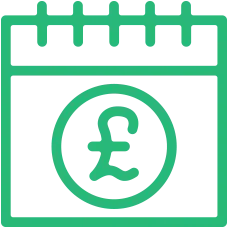
Buy now, pay later
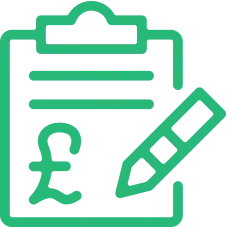
Overdraft

Credit card
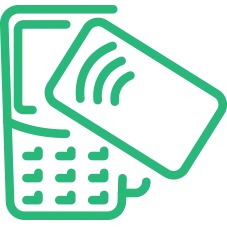
Store card
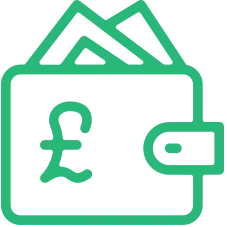
Payday loan
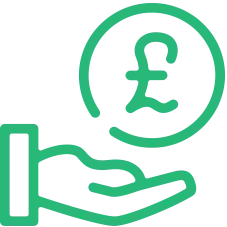
Bank loan

Buy now, pay later

Overdraft

Credit card

Store card

Payday loan

Bank loan
Customer Story.
Based on an actual review provided by a MoneyPlus Advice customer. Photo not of actual customer.
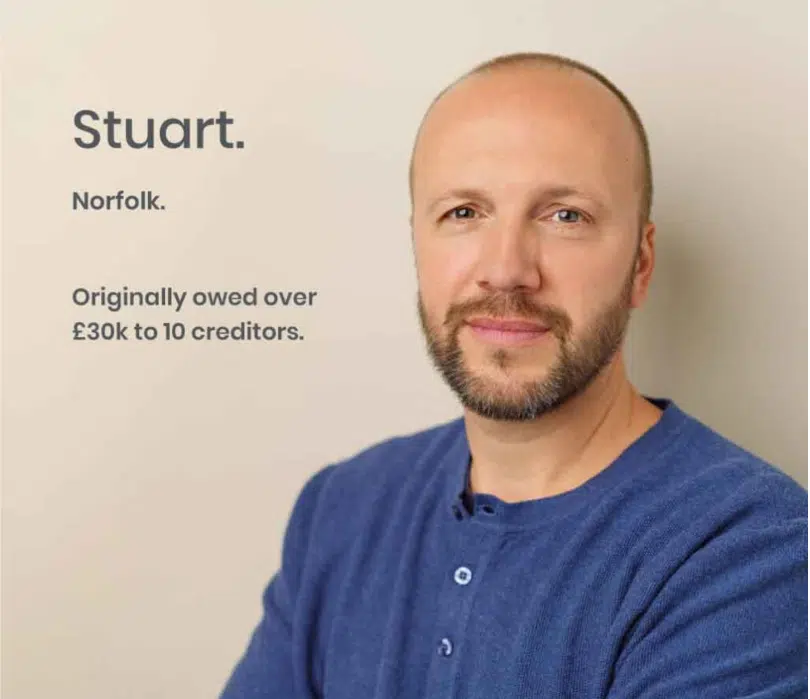
“I really cannot speak too highly of MoneyPlus, they literally saved my life.“
I had over £30k worth of debt and didn’t know what to do to clear it. Because of the amount and my fluctuating income, it was a long haul.
Throughout the process the Advisors at MoneyPlus Advice were patient, helpful and empathetic in equal measures, even when I missed a payment. They regularly reviewed my situation and never allowed me to make a payment I couldn’t afford, or without ensuring my priority debts were up to date, and contacted each creditor in the event of a change in my circumstances.
Fortunately, I was able to sell my house due to a break-up with my partner and the equity allowed me to clear the outstanding balance, which had reduce to less that £11k.
Without the team at MoneyPlus I doubt I would have got to the position of solvency in which I now find myself.
Debt Consolidation FAQs
Yes, there are a number of debt solutions that allow you to combine your debt, such as IVAs and DMPs. Both these options allow you to combine debts included in the debt solution into affordable monthly payments, helping your debt become easier to manage.
Combining your debts may be right for you if you have multiple outstanding debts and you’re struggling to keep on top of your monthly repayments. By using an IVA or DMP to combine some of your debt, you’ll have just one single monthly repayment which could be easier to manage.
However, you should always consider whether you’re eligible and the pros and cons of these debt solutions. It can therefore be helpful to get professional debt advice before applying for a debt solution.
The impact on your credit score depends on which debt solution you opt for. For example, solutions such as IVAs, DROs and bankruptcy stay on your credit file for six years, meaning it can be harder to get credit during this time. DMPs, on the other hand, aren’t formal debt solutions so shouldn’t appear on your credit file as long as you pay the full contractual amount each month.
If a Debt Consolidation Loan isn’t the right option for you, there are a number of alternatives that can help you to manage your debt, such as:
Debt Management Plan (DMP)
A DMP is an informal agreement with your creditors to pay back your debts in affordable monthly instalments. It is usually arranged through your debt advisor who will deal with your creditors directly on your behalf. Your creditors may also freeze interest and charges may be reduced or frozen.
Individual Voluntary Arrangement (IVA)
An IVA is a legally binding agreement where you repay a portion of your debt every month over a set period (usually five or six years). Any remaining debt is written off at the end of the term. During an IVA, your creditors aren’t allowed to contact you or take action against you. Any interest or charges are also frozen.
Debt Arrangement Scheme (DAS)
A DAS is a government-backed scheme available for Scottish residents that lets you repay debts through a Debt Payment Programme (DPP). Interest and charges are frozen, and creditors cannot take legal action against you.
Debt Relief Order (DRO)
A DRO is an option for people with low income and minimal assets who cannot afford to repay their debts. It freezes debt repayments for 12 months, and if your financial situation hasn’t improved after that time, your debts are written off.
Bankruptcy
If you cannot repay your debts, bankruptcy may be an option. It clears most unsecured debts but can impact your credit rating and assets.
If you’re unsure of who you owe money to, there are steps you can take to identify your creditors. Start by checking your credit report, which should include a list of most of your debts and the companies you owe money to. You can get a free credit report from any credit reference agency including Experian, Equifax, and TransUnion.
Additionally, look at any past financial statements, bills, or letters you’ve received, as these may contain information about outstanding debts. If you’re still unsure, our expert debt advisors can help you track down your creditors and develop a plan to manage your debts.
Debt consolidation can have several effects on your existing mortgage, depending on how you choose to combine your debt.
Home equity loans or lines of credit
Using home equity to combine debt involves borrowing against the value of your home. While this can provide lower interest rates and tax benefits, it also means putting your home at risk.
Refinancing your mortgage
Another option is refinancing your mortgage to pay off debts. This can result in a lower overall interest rate and single monthly payment but extends the duration of your mortgage, potentially increasing the total interest paid over time.
Impact on mortgage terms
Lenders may view debt consolidation as a positive move if it improves your overall financial stability. However, they will also consider your remaining equity, current mortgage terms, and overall financial health when deciding to refinance or offer additional credit.

